Five years old now and we are still here. What an achievement! By the end of last year I noted that some 3000 books, across all forms and genres, had been reviewed. By the end of 2016, this had climbed to over 3,600. You can find them on our Books Reviewed for AWW Challenge link at the top of our site.
Now, I’m going to repeat what I said last year regarding my area, Literary and Classics. It’s a slippery one, because there are no universally accepted definitions for either. Consequently, we primarily rely on reviewers’ decisions regarding categorisation. However, I do tweak this occasionally, such as where most reviewers have categorised a book as Literary but one or two haven’t, or where, because “Literary” is a sub-category, some reviewers don’t realise they can apply it. Given this, my assessment is that a little over 360 reviews were posted in this category in 2016. A small reduction on last year’s total, but still a worthy contribution don’t you think? Please note that these categories are not limited to fiction.
And now, hang in there folks, because we’ve a lot to get through in wrapping up this unwieldy lot!
Literary Awards in 2016
 Australian women fared well in the year’s literary awards, with a wider spread than last year when Joan London won four awards. She won another this year, the now biennial Western Australian Premier’s Literary Awards. There was one standout this year, though, Charlotte Wood’s The natural way of things which won three awards – the Stella Prize, the Indie Book Awards, and shared the Prime Minister’s Literary Award for Fiction. Charlotte Wood was our most reviewed author this year, with 19 reviews covering 5 of her books. Fourteen of these were for The natural way of things.
Australian women fared well in the year’s literary awards, with a wider spread than last year when Joan London won four awards. She won another this year, the now biennial Western Australian Premier’s Literary Awards. There was one standout this year, though, Charlotte Wood’s The natural way of things which won three awards – the Stella Prize, the Indie Book Awards, and shared the Prime Minister’s Literary Award for Fiction. Charlotte Wood was our most reviewed author this year, with 19 reviews covering 5 of her books. Fourteen of these were for The natural way of things.
Other Australian women who won significant awards include:
- Stephanie Bishop, The other side of the world: Australian Book Industry Award (Literary Fiction)
- Georgia Blain, Between a wolf and a dog: Queensland Literary (Fiction) Award
- Merlinda Bobis, Locust girl: A lovesong: NSW Premier’s Literary Award
- Peggy Frew, Hope Farm: Barbara Jefferis Award
- Lisa Gorton, The life of houses (shared with Charlotte Wood): Prime Minister’s Literary Award
- Mireille Juchau, The world without us: Victorian Premier’s Literary (Fiction) Award
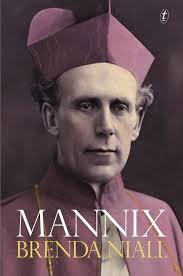 Brenda Niall, Mannix: the ALS Gold Medal and the National Biography Award
Brenda Niall, Mannix: the ALS Gold Medal and the National Biography Award- Lucy Treloar, Salt Creek: Dobbie Award
- Fiona Wright, Small acts of disappearance : Nita Kibble Award
All of these books, except for Merlinda Bobis’ Locust girl, have been reviewed for the challenge. Four of Bobis’ other books are in our database, so it would be good to have this one included too.
Finally, we were thrilled when Joan London won the Patrick White Award last year – and again this year when it went to another great, under-recognised, woman writer, Carmel Bird. Several of her books have been reviewed for the challenge, but let’s not rest on our laurels. If you haven’t read her, do give her a go. She has a delightfully cheeky way of viewing the world.
Most reviewed Literary/Classic books in 2016
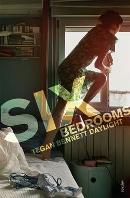 Unlike last year, one book overwhelmed the rest in terms of number of reviews, but there were several which tied for the next positions! The most reviewed books were:
Unlike last year, one book overwhelmed the rest in terms of number of reviews, but there were several which tied for the next positions! The most reviewed books were:
- Charlotte Wood, The natural way of things (14)
- Hannah Kent, The good people (9)
- Tegan Bennett Daylight, Six bedrooms; and Peggy Frew, Hope Farm (7 each)
- Melissa Ashley, The birdman’s wife; Mireille Juchau, The world without us; Inga Simpson, Where the trees are; Magda Szubanski, Reckoning; and Fiona Wright, Small acts of disappearance (6 each)
Quite a varied group like last year. They include four literary award winners (The natural way of things, Hope Farm, The world without us and Small acts of disappearance); a book of short stories (Six bedrooms); and two very different memoirs (Reckoning and Small acts of disappearance (6 each). Two, interestingly, deal in some way with hippy communities (Hope Farm and The world without us). Is this because that era is now just enough in the past to warrant re-thinking about it?
Most reviewed Literary/Classic authors in 2016
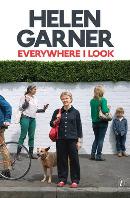 There was some change this year regarding most reviewed authors, though two carried over from last year (Helen Garner, 3rd, and Charlotte Wood, 4th, last year), which gives a sense of which writers are garnering our longer term attention. This year’s top four are:
There was some change this year regarding most reviewed authors, though two carried over from last year (Helen Garner, 3rd, and Charlotte Wood, 4th, last year), which gives a sense of which writers are garnering our longer term attention. This year’s top four are:
- Charlotte Wood (19 reviews for 5 books)
- Helen Garner (16 reviews for 4 books)
- Elizabeth Harrower (11 reviews for 3 books)
- Hannah Kent (13 reviews for 2 books)
The other multiply reviewed authors, really, are those listed under most reviewed books above.
Most reviewed Classics
The number of classics reviewed has vacillated somewhat: 30 in 2013, 23 in 2014, 33 in 2015, and 28 this year. Interestingly, last year we had 7 authors who received 3 or more reviews, but the reviews were spread across more authors this year. So to our most reviewed “classics” authors:
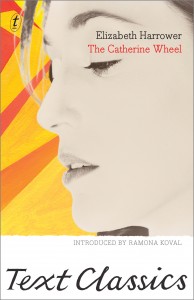 Miles Franklin (3): all for My brilliant career
Miles Franklin (3): all for My brilliant career- Elizabeth Harrower (3): for The Catherine wheel (2) and In certain circles (1)
- Thea Astley (2): for It’s raining in Mango and Drylands
- Ruth Park (2); for Playing Beatie Bow and Swords and crowns and rings
- Christina Stead (2): for Ocean of story (Part 1 only) and The Salzburg tales
We saw some new “classic” authors added to our database this year. These included late 19th to early 20th century author Rosa Praed, and children’s authors Robin Klein and Jenny Wagner. I loved seeing these lesser known works from over a century ago appearing in our list, and it’s also exciting to see our children’s classics being recognised as such.
Some sad farewells
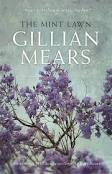 2016 saw us lose several wonderful women writers, all of whom won and/or were shortlisted for some of Australia’s most significant literary awards. Three of them were only in their 50s or 60s which, to my mind, is way too young. I don’t remember seeing such a loss in one year before – it’s tragic. They were, in the order they died:
2016 saw us lose several wonderful women writers, all of whom won and/or were shortlisted for some of Australia’s most significant literary awards. Three of them were only in their 50s or 60s which, to my mind, is way too young. I don’t remember seeing such a loss in one year before – it’s tragic. They were, in the order they died:
- Gillian Mears (51, complications from multiple sclerosis): Four of Mears’ books have been reviewed for the challenge to date, with her multi-award-winning Foal’s bread being reviewed the most (11).
- Cory Taylor (61, melanoma): Unlike Mears, Taylor was a late bloomer, with her first novel, Me and Mr Booker not published until her mid 50s. We do not have a review for it, but we do for her second novel, My beautiful enemy and for her dare-I-say-it poignant memoir, Dying,
- Georgia Blain (a few days off 52, brain tumour): We have reviews for some of Blain’s novels and for her memoir Births deaths marriage. Her memoir about her experience of cancer will be published later this year.
- Shirley Hazzard (85): As an expatriate Australian writer, we do not have as many reviews of her books as, really, we should, but we do have her three main novels covered (she wasn’t prolific) and a collection of short stories.
If you haven’t read these writers, and I admit that I haven’t read Cory Taylor, I suggest that reading and reviewing (for the challenge) them would be a wonderful way of honouring them!
I should also mention Blain’s mother, Anne Deveson, who died a couple of days after her daughter at the age of 86. Known more as a broadcaster, filmmaker and activist, she did write several books too, one of which, Resilience, has been reviewed once for the challenge. Her best known book, however, is probably Tell me I’m here, a sort of memoir about life with her schizophrenic son. It’s an excellent read about a very distressing subject.
Our reviewers
Several reviewers, besides me, contributed more than reviews for my categories. Note that many will have reviewed more than their count below, because my count only encompasses their Literary/Classic reviews. I thank them and, in fact, all of you who contributed even one review this year. It all helps us achieve our goal of recognising and promoting the diversity of Australian women’s writing.
- Kim Forrester (Reading Matters): 29
- Jennifer Cameron-Smith: 25
- Kate (booksaremyfavouriteand best): 16
- Brona’s Books: 13
- Calzean: 13
Finally …
While our numbers overall, and in classics, were a little down on last year, we did achieve greater breadth this year – and that is a very good thing. Increased breadth, that is, less concentration on particular authors and titles, means more individual authors and a greater variety of books being covered and that suits our challenge’s wider goals very well. And this provides me with the perfect segue to …
Joining us in 2017
If you haven’t joined the Challenge in the past, we’d love you to consider doing so. It’s easy, just sign on here. You don’t have to write reviews, but it’s great if you can.
About Whispering Gums
I read, review and blog about (mostly) literary fiction. It was reading Jane Austen when I was 14 that turned me onto literary fiction/classics, which is why I am here today doing this round-up! Little did Jane know what she started!
My love of Aussie literature started in childhood with Banjo Paterson’s ballads and Ethel Turner’s Seven Little Australians. But, I didn’t really discover Australian women’s writing until the 1980s when I “met” and fell in love with Elizabeth Jolley, Thea Astley, Olga Masters, Helen Garner and Kate Grenville. Ever since then I have made sure to include a good percentage of Australian (and other) women writers in my reading diet.






A great round-up and makes me realise the importance of the Stella Prize – lots that I reviewed in this category were part of my Stella Prize short-list reading and I certainly made some great discoveries, particularly Six Bedrooms and Small Acts of Disappearance. Looking forward to more great Australian literature this year and thank you again AWW for providing a wonderful forum.
And thanks for your contributions Kate. I love your comment re the Stella Prize. It does seem like it’s making a mark, and not just in terms of the prize but all the other promotional work they are doing.
Thanks, Sue, for this overview, and for all you have done for the challenge over the past five years. It’ll be interesting to see what this year brings in terms of discovering forgotten works. I’m hoping for great things!
Thanks Elizabeth, I am too.
What a great roundup, Sue. Thanks. It’s so good (I think!) to be reminded that however many excellent books I’ve read there are many more still out there.
Haha, Jonathan. That’s a great way of looking at it. Oh, and thanks!
What a wonderful roundup Sue. I hope I can do such a good job on the historical roundup. And I have some good reviews coming. I have finished my last Jean Curlewis The Dawn Man (1924) and will be reviewing soon. I’m reading Clift’s Peel Me A Lotus and also Nadia Wheatley’s wonderful biography on Charmian Clift so watch out for those!
Thanks Debbie, you will, but yours will be different because our areas are so different. Mine is so diverse!
I LOVE those books you’ve read/are reading and will be thrilled to have them in my next round-ups – as you clearly know.
Thanks so much Sue! I’ve emailed you.